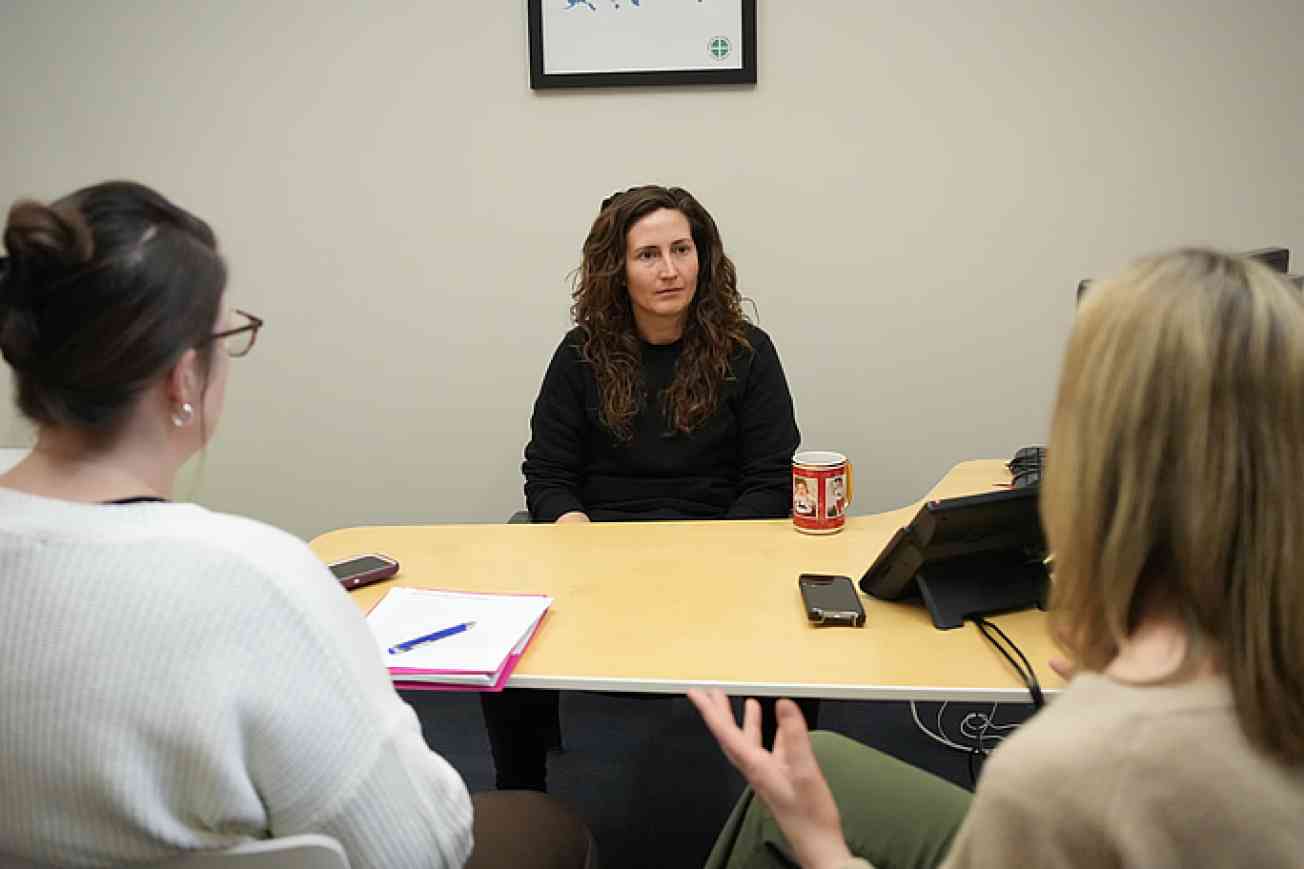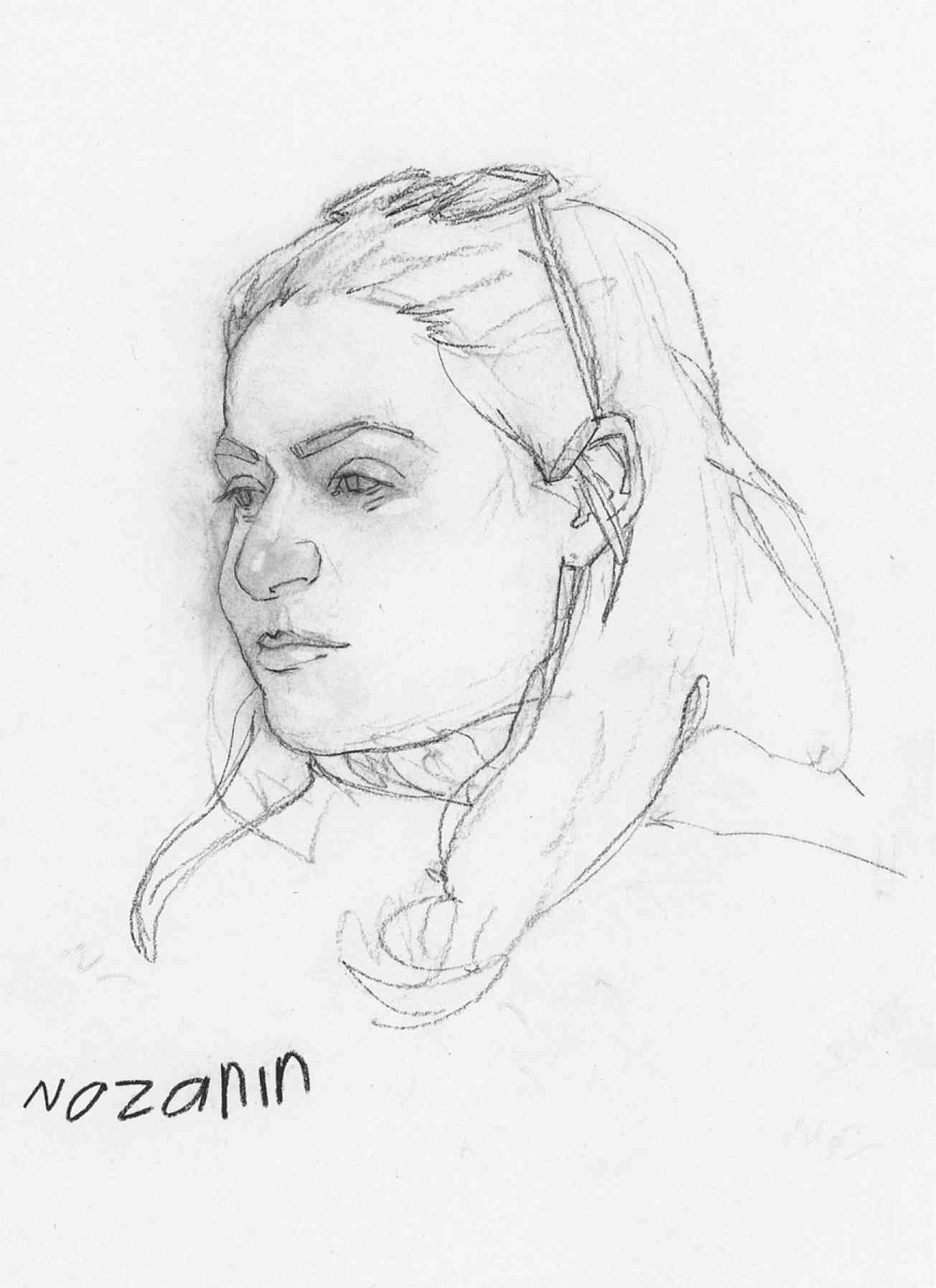
While living abroad as an exchange student in South Korea this fall, I had the remarkable opportunity to serve as a Story Production intern for Their Story Is Our Story. This role gave me flexibility to keep up with my studies here at Yonsei University while still contributing to the TSOS mission, which I hold in the highest esteem (as I believe all should). To say that I was excited to begin this internship is a severe understatement. Ever since I first discovered TSOS, I have always strongly admired the constant strive to ensure that interviewees have full control over how their personal narratives are shared.
The effect that this has is significant; it is a reclamation of the power that is so often taken away from refugees by mass media, which can harmfully commercialize and portray unfounded archetypes. Respecting the rights of privacy and providing factual information should be common practice, yet in the digital age, the spread of content occurs so rapidly that this is not always a realistic endeavor. It is a situation that is worsened by the lack of proper awareness and education surrounding forced displacement. The result is that personal lives are being publicized in a way that does not provide a safe, healthy environment for refugees to be understood on their own terms. Instead, they are subject to the opinions and judgments of privileged others who are so far removed that the only exposure they have is through stories that circulate in the media.
However, TSOS pushes back against this by sharing the stories of those who consent and approve of the manner in which their narratives are being presented. When the lived experiences of refugees are humanized like this — as they innately deserve to be — the positive effects are numerous. Advocacy becomes more inspired, and stronger awareness influences the amount of community and local support that is available for those who are forcibly displaced. As a part of a larger goal, even public policy and governmental action can be impacted for the better. Contributing to this line of work has been such a meaningful experience for me, and my time spent with Story Production in particular has been a major factor in this.
Throughout the internship, I have had the chance to work with several different interviews. I started off looking over interview transcriptions produced by the Otter.ai app, checking for accuracy and making corrections as needed. This contributed to the writing process, where others could then edit the clean transcripts into focused stories. I eventually transitioned to the editing and writing task myself. By the end of this internship, I have produced three stories, and each one was a captivating journey that taught me invaluable lessons along the way.

The first story I finished was for Katie Moran, who works for Catholic Charities USA. Although not a refugee herself, she has traveled to several different countries where she experienced a variety of cultures, and the generosity she received within these communities has inspired her to pay that kindness forward. Her personal philosophy in serving others teaches me that truly anyone can be helpful, no matter how big or small the action seems, and the possibilities of how someone could do so are countless. Over time, a selfless and consistent cycle of helping others can encourage a broader culture of giving that benefits not just those who are new to a country, but everyone else as well. It is a system where all can feel welcomed, seen, and accepted. Katie Moran’s story was a lesson for me in that everyone is capable of generosity, if only they are willing to tap into it and put it to use.
On a more technical level, however, this story was also my introduction to the challenge of deciding what to include in a narrative and what to leave out. It was a difficult task to be presented with, because I knew that the choices I made could affect the direction and tone of the overall story. The responsibility of doing this was honestly quite daunting for me at first. To be in a position where I had to narrow down an interviewee’s words made me feel as if I was placing a value on some of them more so than others. I was soon able to talk about this subject with the Story Production team during one of our meetings, which helped me understand that the narrative would reveal itself on its own as I began writing. A specific theme would start to stand out, where I would then be able to get a natural grasp of what to focus on. I had to be willing to trust in my ability to gravitate toward the messages that would best represent the interviewee. That gave me time to reflect even more on the significance of my role in this internship. I was determined to produce a narrative that held true to the interviewee’s experiences while still reflecting their achievements and personal growth.

The last and final story that I worked on was Nazanin, a single mother of four children who is navigating a new life after leaving Afghanistan for the United States. Her past experiences are as difficult as they come, yet in the face of everything, Nazanin continues to support her children with all that she is. Her endurance and resilience is an indescribable feat, and I hope that seeing these traits within her story inspires others to know that there is always potential and possibility for more. My wish is that it also puts into perspective the realities that many have to face, thus challenging those in power to acknowledge that they have the capacity to enact change within their positions. This initial awareness being made public can eventually lead others to seek out means of educating themselves further, which can then support more societal effort in amplifying refugee voices.
It has been a much valued experience to work on the stories of these three women. Each one of them taught me something new, and learning about the path of their lives was something so special that it is difficult for me to find the words to express it. I am so incredibly grateful to know their stories and I hope that with their narratives being made available by TSOS, other people can feel just as moved and impacted by them as I do. To be able to call myself a part of this effort has been a great honor and it is something that I will be proud of for the rest of my life.
If you are interested in becoming an intern, like Calista was, learn more on our internships page, subscribe to our email list, and follow us on social media to be notified when our next internship is open for applications.
Official Statement on the Detention of Refugees and Ongoing Community Violence
With another death in Minnesota and continued violence toward individuals and groups standing up for their communities, we acknowledge the profound fear and uncertainty people are feeling--not just locally, but across the country.
On top of this, there are reports that refugees invited and admitted to our country through the U.S. Refugee Admission Program are now being detained, meaning that our new friends and neighbors feel that fear most acutely.
Refugees have already fled violence and persecution once. They came here legally, seeking safety. In moments like these, we reaffirm our commitment to building communities where refugees and immigrants can live without fear. Where they can go to work, send their children to school, and build lives of dignity and belonging.
We call for due process, accountability, and humanity in all immigration enforcement operations. We call upon our leaders to demand the demilitarization of our neighborhoods and cities. And we call on all of us to continue the work of welcoming and protecting those who have been forcibly displaced from their homes.